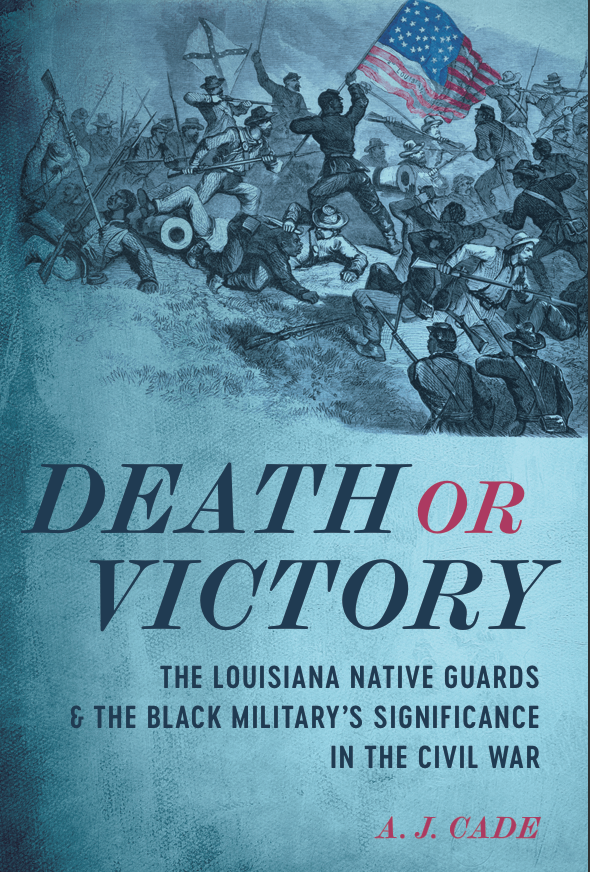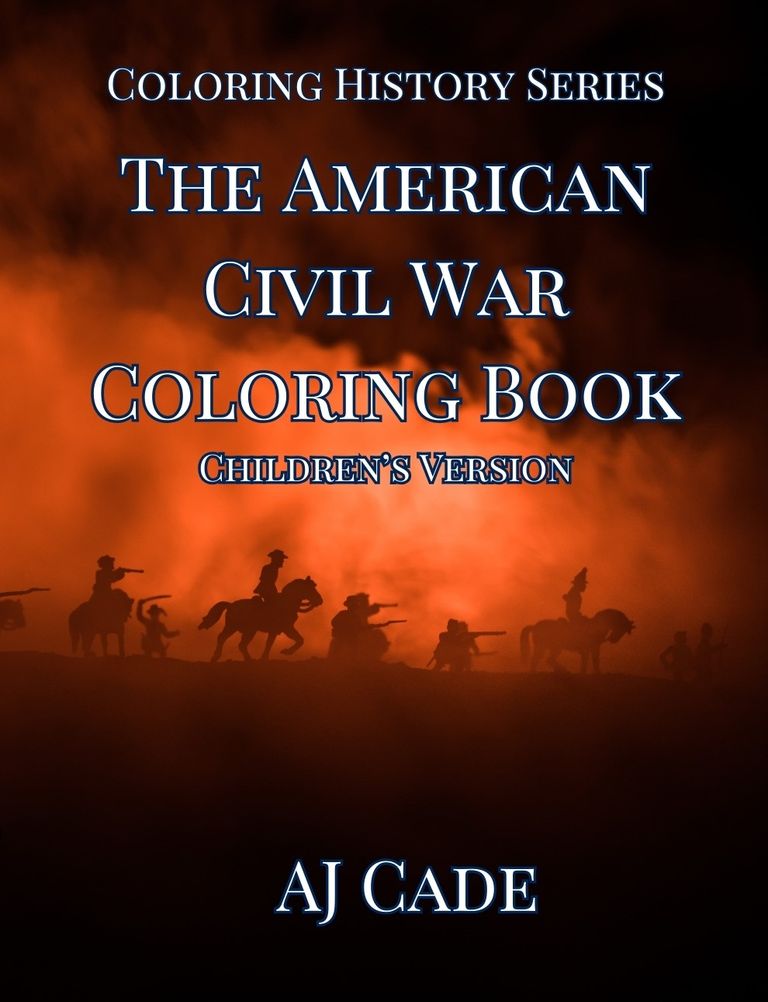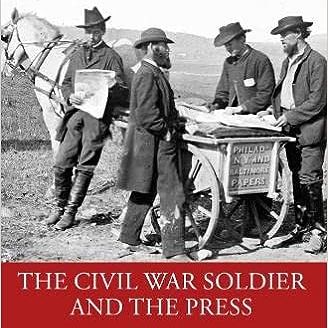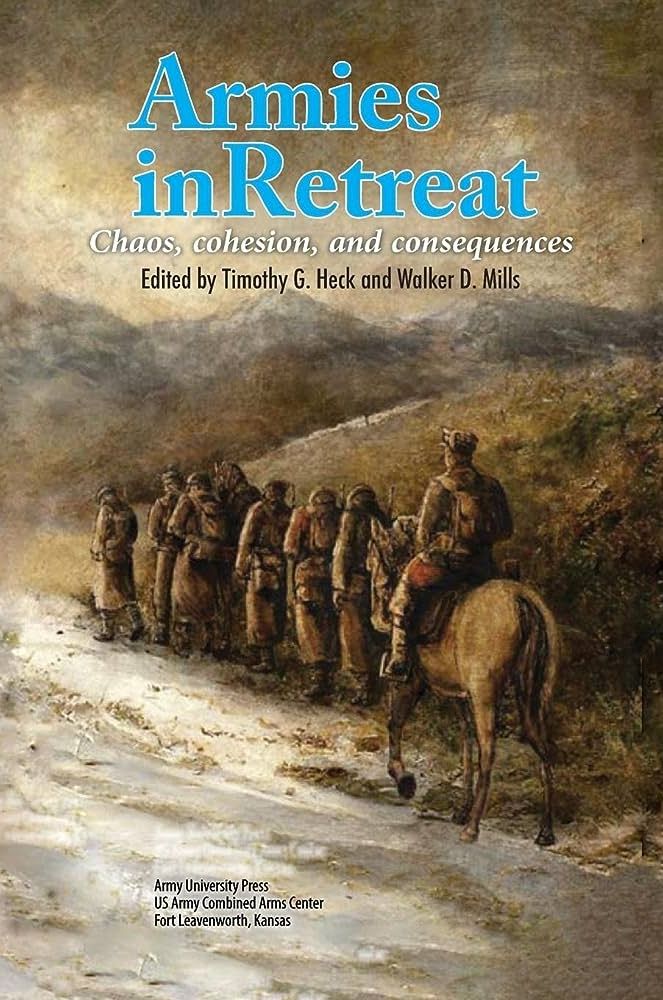
Death or Victory: The Louisiana Native Guards & The Black Military's Significance in the Civil War
A. J. Cade’s Death or Victory offers the first in-depth history of the Louisiana Native Guards, pioneering African American regiments within the Union army. Originating as a division of the New Orleans Home Guards in May 1861, the Native Guards consisted of free Black and Creole men who leveraged the city’s established military customs to gain entry into the Home Guards. Although not officially part of the Confederate forces, their involvement compelled the federal government to contemplate forming a similar regiment, setting the stage for their transition to the Union army the following year.
Cade’s research highlights the Native Guards’ crucial role as a testing ground for Black participation in the Civil War. Abraham Lincoln, the War Department, and the entire nation regarded these early regiments as an experiment in understanding the implications of Black service. The Native Guards exceeded expectations, engaging in significant battles and sieges. Their achievements paved the way for broader Black involvement in Louisiana and eventually throughout the Union army. Prominent figures such as Frederick Douglass cited the Native Guards as evidence of Black Americans’ entitlement to full citizenship and postwar freedom, an opinion later echoed by Lincoln. Cade’s work challenges existing Civil War narratives by shedding light on the overlooked contributions of the Louisiana Native Guards, rectifying misconceptions, and highlighting Black and Creole individuals who fought for their nation.
In addition to revising Civil War historiography, Cade’s study also contributes to a more nuanced understanding of race and class in nineteenth-century New Orleans. Cade shows how the Native Guards reflected the unique racial dynamics of the city, where free Black and Creole men of color had long enjoyed a degree of social and economic autonomy. These men were often educated, property owning, and deeply invested in the city’s civic life. Their service in the Native Guards was not just about fighting for the Union; it was also about asserting their rights as citizens and challenging the racial hierarchies that sought to deny them full participation in American society. By examining the motivations and experiences of these men, Cade provides a compelling portrait of a community that defied easy categorization and played a pivotal role in shaping the course of the Civil War.
The American Civil War
Coloring Book
The American Civil War has remained a mainstay in the American paradigm because of the lasting effects of the war on the nation’s society. There are numerous misconceptions about the war, however, and the fault lies in generalized histories that do not address various aspects of the Civil War. Written by one of the nation’s leading historians, The American Civil War Coloring Book is an interactive coloring book that will keep you interested on every page.
Great for use as a study guide or refresher on the Civil War, this book touches on battles, weapons, generalship, spies, women, and slavery, to name a few. You will learn at least one new aspect of the war before you reach the end of this coloring book. The Children's Version of this coloring book is written in plain-text for children and general readers, but all of the information presented is identical to the adult version.
The first book in the Coloring History Series is a wonderful opportunity to learn as you de-stress and color. Great for all ages, this series presents readers with in-depth analysis while coloring the faces of significant historical figures. The American Civil War Coloring Book has some of the most prominent figures from that time, such as Fredrick Douglass, Clara Barton, Abraham Lincoln, and many more!
Your New Journey:
How to Thrive in Graduate School as a Person of Color
Higher education is not the most welcoming of places for students who are from an underrepresented community; however, as the world moves further into the twenty-first century, more of us are earning graduate degrees. Written informally, Your New Journey is a guidebook for students who are looking for tips from someone who has already successfully navigated through the pitfalls of earning a Master’s or Doctorate. Filled with personal anecdotes from the author, this book details how to prepare, apply, attend, and graduate while thriving in graduate school, along with additional information on resume writing and the numerous careers available for someone with a graduate degree.
Your New Journey: How to Thrive in Graduate School as a Person of Color is about you. How can you go about your journey through graduate school, and most importantly, what steps you can take at any point in your life to set you on that path. You will want to save and revisit this book throughout your life because of all the advice it offers.
Topics inside of this award-winning book include:
- How to apply to graduate programs
- How to start and finish a Master’s or Doctoral degree
- How to pass comps and other graduate school obstacles
- How to prepare for and apply to jobs after graduation
- How to deal with racism and place-ism in academia
- Resume writing tips
- Much, Much More!!!
The Civil War Soldier
and the Press
The Civil War Soldier and the Press examines how the press powerfully shaped the nation’s understanding and memory of the common soldier, setting the stage for today’s continuing debates about the Civil War and its legacy.
The history of the Civil War is typically one of military strategies, famous generals, and bloody battles, but to Americans of the era, the most important story of the war was the fate of the soldier. In this edited collection, new research in journalism history and archival images provide an interdisciplinary study of citizenship, representation, race and ethnicity, gender, disability, death, and national identity. Together, these chapters follow the story of Civil War soldiers, from enlistment through battle and beyond, as they were represented in hometown and national newspapers of the time. In discussing the same pages that were read by soldiers’ families, friends, and loved ones during America’s greatest conflict, the book provides a window into the experience of historical readers as they grappled with the meaning and cost of patriotism and shared sacrifice.
Both scholarly and approachable, this book is an enriching resource for undergraduate and graduate courses in Civil War history, American history, journalism, and mass communication history.
My chapter, "Die Deutsche Sicht," examines how Germans and German American's fighting for the Union Army viewed themselves through the American press during the Civil War.
Armies in Retreat
This book fills a gap in the body of publications and literature covering large-scale combat operations. To date, most writing has focused on the victors. But every battle has two sides. For every victor, there is a vanquished. Armies in Retreat explores retreating armies-those that maintained cohesion and later succeeded and others that devolved into chaos. The armies analyzed retreated with impacts at the tactical, operational, and strategic level. Cultural memory and national heritages are impacted by a retreat. Ultimately, this book is about surviving defeat. It is designed to inform leaders about what to expect when the unexpected happens, to prevent the shock and mitigate some of the terror on every side so they can respond with resilience and cohesion. Retreat, while unpalatable, can ultimately lead to military or national survival, even victory
Chapter 17, titled "The Flight into History: The XI Corps at Chancellorsville" is my take on the actions of the XI Corps during and after the infamous Battle of Chancellorsville, and it demonstrates that the corps did not retreat because of cowardice. Instead, I argue that divisive leadership was the chief concern that day.
This volume is published by Army University Press, and it is available for free to everyone. Do NOT purchase this book from a reseller because they are scamming you. Download through the link below.




